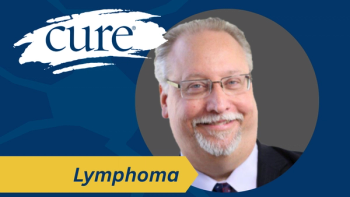
- Hematology 1
- Volume 1
- Issue 1
Reduced Treatment Proves Safer and Just as Effective in Younger Patients With Diffuse Large B-Cell Lymphoma
Treating younger patients with low-risk diffuse large B-cell lymphoma (DLBCL) with two fewer front-line cycles of standard treatment greatly reduced toxicity without sacrificing effi­cacy.
Treating younger patients with low-risk diffuse large B-cell lymphoma (DLBCL) with two fewer front-line cycles of standard treatment greatly reduced toxicity without sacrificing effi­cacy, according to findings from the FLYER trial.
Patients with DLBCL typically receive Rituxan (rituximab), cyclophosphamide, doxorubicin (hydroxydaunomycin), Oncovin (vincris­tine) and prednisolone, a regimen known as R-CHOP. Researchers randomly divided nearly 600 patients aged 18 to 60 to receive either six cycles of R-CHOP or four cycles of R-CHOP followed by two cycles of Rituxan. Of those patients, 588 were evaluable for the efficacy analysis. The patients were enrolled at sites in Germany, Denmark, Norway, Italy and Israel and had similar demographics, according to the researchers.
At a median follow-up of 66 months, the three-year progression-free survival (PFS) rate—how long patients lived without disease worsening—was 94 percent for patients who received R-CHOP for all six cycles compared with 96 per­cent in those who received R-CHOP followed by Rituxan. The three-year overall survival rates — length of life after diagnosis or start of treatment — at a median follow-up of 67 months were 98 percent and 99 percent, respectively.
The patients who received six cycles of R-CHOP experienced more total side effects than those who got four cycles — 1,295 versus 835, respectively. This included 70 versus 46 severe (grade 3 or 4) nonhema­tologic side effects. Severe hemato­logic side effects included low white blood cell and blood platelet counts and anemia.
“With a shorter duration of che­motherapy, patients are back to daily life with their families and back to work more quickly,” said lead study author Viola Poeschel, M.D., of Saarland University Medical School in Homburg/Saar, Germany. “Our study shows you can spare two cycles of chemotherapy and it is equally effec­tive. We think this will be the new standard treatment for this patient population.”
Articles in this issue
almost 7 years ago
The State of CAR-T Cell Therapyalmost 7 years ago
Stem Cell Donation: The Circle of Lifealmost 7 years ago
Parent Caregivers Face Decreased Job Productivityalmost 7 years ago
Power in Numbersalmost 7 years ago
Uncovering the Enemy Within



